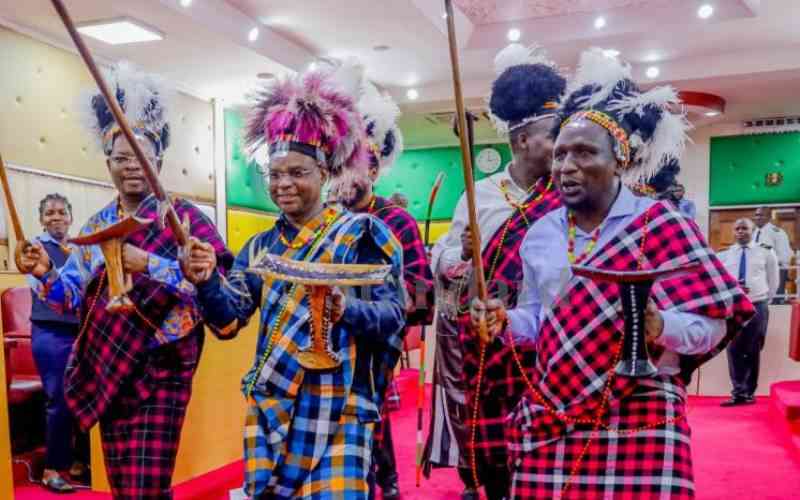×
The Standard e-Paper
Smart Minds Choose Us

At the Cradle Tented Camp in Lodwar, where close to 30 senators and their Speaker put up for a week, a crimson carpet was still baking in the Turkana sun when we arrived days after they flew back to Nairobi.
It's early evening on Saturday, and a golden full moon juts from the East above the majestic Lake Turkana, spreading its radiance on the carpet.